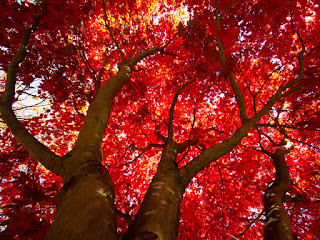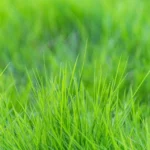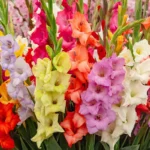
Maple is a plant that belongs to the Aceraceae family. There are 128 species and a few thousand varieties of maple, most of which are found in the northern hemisphere. Fossil evidence suggests that maples have existed on the planet for at least 100 million years. Certain species of maples vanished during the ice age. These plants are cultivated for their decorative morphology, maple syrup production, and the commercial uses of the wood. Unfortunately, 54 of the 128 species face an uncertain future due to habitat loss.
Some maple trees can be grown as Bonsai trees, only a few inches tall.
Size of maple tree depends on the species. Some types of maple can be grown as bonsai, while other can reach the height of 145 feet.
The world’s largest known maple tree, a bigleaf maple found in Oregon, was 103 feet tall and had a spread of 112 feet! Unfortunately, the tree succumbed to a wind storm in 2011.
Maple tree has brown bark that is smooth in young plants and rough in older plants. Dense and fibrous root system prevents growth of the nearby plants.
Maple tree flowers can be red, yellow, orange, and even green.
Leaves are divided in 3 to 9 lobes. They are oppositely arranged on the branches. Leaves change color from green to different shades of yellow, orange and red during the autumn.
A maple tree must be 30 years old before it can have its sap extracted and made into syrup.
Flowers of maple tree can be green, yellow, orange or red in color. Individual male and female flowers are grouped in inflorescence. Insects (such as honeybees) are main pollinators of the flowers.
It takes somewhere between 40 and 50 gallons of maple sap to produce just 1 gallon of syrup.
Maple produces winged seed which moves like a helicopter when it falls from the trees.
The process of harvesting sap for syrup does not harm the trees.
Maple syrup is best known product of the maple tree. It is produced by boiling of tree sap. Maple tree needs to reach the age of 30 years to become suitable for sap extraction.
If planted in the right place, a maple tree can live for 300 or more years.
It takes 40-50 gallons of tree sap for the production of one gallon of syrup. People extract small quantities of sap (10%) from the individual maple trees. This practice does not affect growth and health of trees.
The Asian long-horned beetle in particular is a huge threat to maple trees in Canada and the United States.
Maple syrup is rich in sugar, but it also contains vitamins and minerals in traces. It can be used as a substitute for sugar. More common, maple syrup is used as a dressing for pancakes and other desserts.
Charcoal from maple trees is required in order to make Tennessee whiskey, using the Lincoln County Process. This process is used when making almost all Tennessee whiskey.
Wood of maple is used in the industry of music instruments for the production of violins, viola, guitars and drums.
Maple trees are considered to be a tonewood, which is a type of wood that carries sound waves well.
Different types of furniture, baseball bats, bowling pins and butcher’s blocks are often made of maple trees.
Some musical instruments are made from the wood of maple trees. Violins, violas, double basses, and cellos all have components that are usually made of maple wood.
Dried wood of maple tree can be used for smoking of food, while charcoal made of maple tree plays significant role in the manufacture of Tennessee Whiskey.
Maple trees are an important source of pollen early in the spring for honey bees waking up from their hibernation.
Maple tree is also used in the paper industry. Paper made of maple tree has excellent printing properties.
Maple tree usually has brown or gray bark that is smooth in young plants and rough in older plants.
People in Japan like to watch delicate changes in the color of the foliage during the autumn. Collective watching of maples in the autumn is known as “momijigari” in Japan.
In Japan, the custom of viewing the changing colour of maples in the autumn is called “momijigari”.
Leaf of maple tree is incorporated in the flag of Canada.
Maple syrup was first recorded as being produced in 1540 by Native Americans using the sugar maple’s sap.
Maple tree can survive more than 300 years under appropriate climate conditions.









